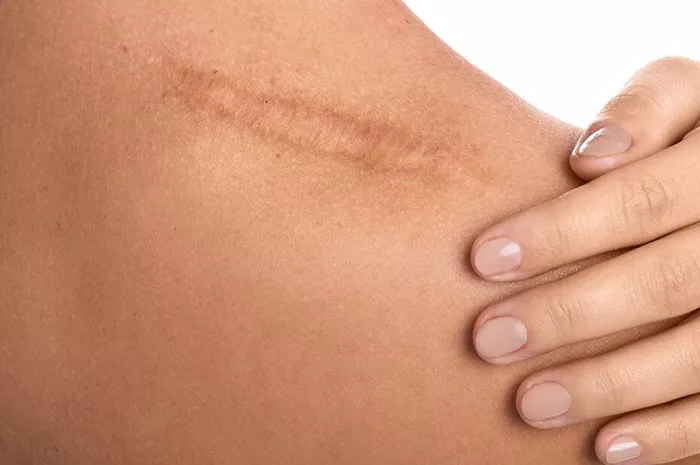Experiencing an itchy face and nose can be both irritating and concerning. Itching in these areas can be caused by a variety of factors, ranging from common environmental irritants to underlying medical conditions. Understanding the potential causes and knowing how to address them can help alleviate discomfort and improve your quality of life. This comprehensive article explores the various reasons why your face and nose might be itchy, along with tips for managing and preventing this condition.
Common Causes of Itchy Face and Nose
Allergies
Allergies are one of the most common reasons for an itchy face and nose. Allergens such as pollen, dust mites, pet dander, and certain foods can trigger allergic reactions, leading to itching, redness, and swelling. Seasonal allergies, often referred to as hay fever, can cause persistent itchiness during specific times of the year.
Dry Skin
Dry skin, or xerosis, can cause itching and flakiness on the face and nose. This condition is often exacerbated by cold weather, low humidity, hot showers, and harsh soaps. When the skin’s natural moisture barrier is compromised, it becomes more susceptible to irritation and itching.
Skin Conditions
Various skin conditions can lead to an itchy face and nose. These include:
- Eczema (Atopic Dermatitis): A chronic condition characterized by dry, itchy, and inflamed skin.
- Psoriasis: An autoimmune disorder that causes red, scaly patches on the skin.
- Rosacea: A condition that causes redness, swelling, and sometimes itching on the face, particularly the cheeks and nose.
Irritants and Contact Dermatitis
Exposure to irritants such as certain skincare products, cosmetics, soaps, and detergents can cause contact dermatitis. This condition results in redness, itching, and sometimes blistering. Identifying and avoiding the offending product is crucial for relief.
Infections
Skin infections, including bacterial, viral, and fungal infections, can cause itching on the face and nose. Conditions like impetigo, herpes simplex, and fungal infections such as ringworm may present with itching, redness, and other symptoms.
Environmental Factors
Weather Conditions
Extreme weather conditions, such as cold, dry winters or hot, humid summers, can impact skin health. Cold weather can strip the skin of its natural oils, leading to dryness and itchiness, while hot weather can cause sweating and irritation.
Pollution
Air pollution can have adverse effects on the skin, leading to irritation and itching. Pollutants such as smoke, chemicals, and particulate matter can penetrate the skin, causing inflammation and discomfort.
Indoor Air Quality
Indoor air quality, influenced by factors like heating, air conditioning, and indoor pollutants, can affect skin health. Poor indoor air quality can lead to dry, itchy skin, especially in environments with low humidity.
Lifestyle and Habits
Skincare Routine
An improper skincare routine can contribute to an itchy face and nose. Over-washing, using harsh products, or neglecting to moisturize can disrupt the skin’s natural barrier, leading to dryness and irritation.
Diet and Hydration
Diet and hydration play a significant role in skin health. A diet lacking essential nutrients, particularly vitamins A, C, D, and E, can affect skin integrity and cause itching. Additionally, inadequate hydration can lead to dry, itchy skin.
See Also: Why Is Fexofenadine Not Working?
Stress and Anxiety
Stress and anxiety can have physical manifestations, including itching. Stress-induced itching, also known as psychogenic pruritus, can occur without an underlying skin condition and may worsen with increased stress levels.
Medical Conditions
Systemic Conditions
Certain systemic conditions can cause itching on the face and nose. These include:
- Liver Disease: Conditions like cirrhosis and hepatitis can cause generalized itching, including on the face.
- Kidney Disease: Chronic kidney disease can lead to uremic pruritus, causing itching without a rash.
- Thyroid Disorders: Both hyperthyroidism and hypothyroidism can affect skin health and lead to itching.
Neurological Conditions
Neurological conditions, such as neuropathy or nerve damage, can cause itching sensations on the face and nose. This type of itching is often chronic and may be challenging to treat.
Diagnosing the Cause
Medical History and Physical Examination
Diagnosing the cause of an itchy face and nose begins with a thorough medical history and physical examination. Your healthcare provider will ask about your symptoms, medical history, skincare routine, and exposure to potential irritants or allergens.
Allergy Testing
If allergies are suspected, allergy testing may be recommended. Skin prick tests or blood tests can help identify specific allergens that may be causing your symptoms.
Skin Biopsy
In cases where a skin condition is suspected, a skin biopsy may be performed. This involves taking a small sample of skin for laboratory analysis to determine the underlying cause of the itching.
Blood Tests
Blood tests may be ordered to check for systemic conditions that could be causing itching. These tests can help identify liver or kidney dysfunction, thyroid disorders, and other underlying medical conditions.
Treatment and Management
Topical Treatments
Topical treatments can provide relief from itching and address underlying skin conditions. These include:
- Moisturizers: Hydrating the skin with moisturizers can help alleviate dryness and itching.
- Corticosteroids: Topical corticosteroids can reduce inflammation and itching caused by eczema, psoriasis, and other skin conditions.
- Antihistamines: Topical antihistamines can help reduce itching caused by allergic reactions.
Oral Medications
In some cases, oral medications may be necessary to manage itching. These include:
- Antihistamines: Oral antihistamines can help alleviate itching caused by allergies.
- Steroids: Oral steroids may be prescribed for severe itching and inflammation.
- Immunosuppressants: For chronic skin conditions, immunosuppressants may be necessary to control symptoms.
Lifestyle Modifications
Making lifestyle modifications can help manage and prevent itching. These include:
- Avoiding Irritants: Identify and avoid skincare products, cosmetics, and environmental factors that trigger itching.
- Hydration: Drink plenty of water to maintain skin hydration.
- Humidifiers: Using a humidifier can help maintain indoor humidity levels and prevent dry skin.
Stress Management
Managing stress and anxiety can help reduce stress-induced itching. Techniques such as mindfulness, meditation, exercise, and therapy can be beneficial in managing stress levels.
When to See a Doctor
Persistent or Severe Itching
If your itching is persistent, severe, or accompanied by other symptoms such as swelling, pain, or a rash, it is important to seek medical attention. A healthcare provider can help determine the underlying cause and recommend appropriate treatment.
Signs of Infection
If you notice signs of infection, such as redness, warmth, pus, or fever, it is crucial to see a doctor promptly. Infections require medical treatment to prevent complications.
Unexplained Itching
Unexplained itching that does not improve with over-the-counter treatments or lifestyle changes should be evaluated by a healthcare provider. This could indicate an underlying medical condition that needs to be addressed.
Conclusion
Itchy face and nose can be caused by a wide range of factors, from environmental irritants and allergies to underlying medical conditions. Understanding the potential causes and taking steps to manage and prevent itching can significantly improve your comfort and quality of life. By maintaining a proper skincare routine, addressing environmental factors, and seeking medical advice when necessary, you can effectively manage itchy face and nose and enjoy healthier, more comfortable skin.
[inline_related_posts title=”You Might Be Interested In” title_align=”left” style=”list” number=”6″ align=”none” ids=”10751,10569,10533″ by=”categories” orderby=”rand” order=”DESC” hide_thumb=”no” thumb_right=”no” views=”no” date=”yes” grid_columns=”2″ post_type=”” tax=””]


































